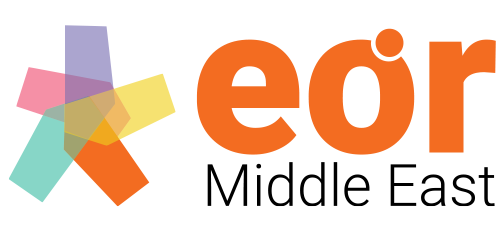Embarking on the intricate journey of payroll processing in Qatar requires a nuanced understanding of payroll Qatar. Navigating this dynamic landscape involves comprehending Qatar’s labor laws and staying vigilant about regulatory changes.
In this article, we delve deep into the intricacies of payroll processing, offering insights into why outsourcing services can be beneficial, general recommendations for compliance, and the nuances of termination and entitlement in Qatar. Additionally, we explore the options available for setting up payroll, providing a detailed overview of internal payroll, remote solutions, and the advantages of outsourcing. Let’s unravel the complexities and establish a solid foundation for payroll success in Qatar.
Why Outsource Payroll Processing Services in Qatar

Outsourcing payroll processing services in Qatar can be a strategic move for businesses, providing payroll Qatar solutions that navigate the intricacies of the local business landscape. In the dynamic realm of Qatar’s labor laws, understanding why outsource payroll processing services in Qatar becomes pivotal.
Firstly, outsourcing ensures compliance with the ever-evolving regulatory framework. Staying abreast of Qatar’s labor law salary deductions and requirements demands constant attention, a task that becomes burdensome for in-house teams.
Moreover, by opting for external expertise, businesses free up valuable time and resources. This, in turn, allows them to focus on their core competencies, driving overall operational efficiency.
Additionally, external payroll services often come equipped with advanced technology and software tailored to Qatar’s specific regulations. This integration minimizes the likelihood of errors and ensures accuracy in payroll calculations.
Furthermore, outsourcing acts as a safeguard against potential legal pitfalls. With professionals dedicated to keeping abreast of changes in Qatar’s labor laws, businesses reduce the risk of non-compliance, avoiding penalties and maintaining a positive employer-employee relationship.
In essence, the decision to outsource payroll processing services in Qatar is rooted in pragmatism. It aligns with the need for expertise in navigating the complexities of Qatar’s payroll landscape, providing businesses with a reliable and efficient solution to meet their payroll processing requirements.
General Recommendations for Qatar Payroll Processing
Navigating the nuances of payroll Qatar necessitates adherence to best practices for a seamless and compliant payroll process. Here are key recommendations for effective payroll process in Qatar:
- Stay Informed: Regularly update HR and payroll staff on Qatar’s evolving labor laws, ensuring they remain well-versed in the latest regulations.
- Invest in Training: Conduct training sessions to enhance the understanding of Qatar’s payroll landscape, emphasizing compliance and accuracy.
- Utilize Robust Software: Implement payroll software tailored to Qatar payroll process, automating calculations and reducing manual errors.
- Regular Audits: Conduct periodic audits of payroll records to identify and rectify discrepancies promptly, maintaining data accuracy.
- Transparent Communication: Communicate clearly with employees about their payroll, ensuring transparency on salary structures and deductions.
- Compliance Checks: Regularly review and update payroll processes to align with changes in Qatar’s labor laws, ensuring ongoing compliance.
- Document Policies: Clearly document payroll policies and procedures, providing a reference for both employees and payroll staff.
- Adopt Best Practices: Benchmark against industry best practices for payroll processing, incorporating efficiency and accuracy benchmarks.
- Seek Professional Advice: Engage with experts familiar with Qatar payroll process to navigate complexities and ensure compliance.
- Embrace Technology: Leverage advanced technologies, such as cloud-based solutions, to enhance efficiency and accessibility in payroll management.
By following these recommendations, businesses can establish a robust foundation for payroll Qatar processing, fostering accuracy, compliance, and efficiency in their payroll operations.
Termination/Entitlement in Qatar
Navigating the intricacies of employee termination and entitlements in Qatar is an essential aspect of payroll Qatar management. Understanding the payroll process in Qatar during termination is pivotal for a seamless transition that aligns with Qatar’s labor laws.
When terminating an employee in Qatar, compliance with the country’s labor laws, especially regarding Qatar labor law salary deduction, are crucial. This ensures a fair and legal process, preventing potential disputes and maintaining a positive employer-employee relationship.
Clear communication during the termination process is paramount. Providing detailed information about entitlements, including gratuity and other benefits, fosters transparency and helps employees understand their rights.
For companies operating in multiple regions, including the UAE, an employer of record in Dubai can help ensure that all legal requirements are met consistently. Having a well-documented policy on entitlements is recommended. This policy, aligned with Qatar’s labor laws, serves as a reference for both employers and employees, creating clarity and avoiding misunderstandings.
Timely processing of final settlements is vital. Prompt disbursal of gratuity, pending dues, and any outstanding payments contributes to a smooth exit for the departing employee, minimizing potential legal complications.
Engaging in open communication with the departing employee is essential. Addressing queries and concerns, and ensuring a clear understanding of their entitlements, contributes to a respectful and positive termination process.
In summary, navigating termination and entitlements in Qatar involves a delicate balance of legal compliance and effective communication. By adhering to payroll Qatar regulations and prioritizing transparent communication, businesses can ensure a fair and legally sound termination process while preserving positive relationships with their workforce.
Setting Up Payroll in Qatar

When establishing a payroll system in Qatar, businesses must weigh the pros and cons of various options available. Each approach—internal payroll, remote payroll, and payroll outsourcing—comes with its own set of considerations.
When deciding on the most suitable approach, businesses should assess their specific needs, considering factors such as the size of the workforce, budget constraints, and the need for direct control. The chosen method should align with the company’s overall goals and the evolving dynamics of the Qatari business landscape.
Payroll Options in Qatar for Companies
Internal Payroll
Implementing an internal payroll system in Qatar grants businesses direct control over their payroll Qatar processes. Operating in-house requires a profound understanding of Qatar’s labor laws, particularly in aspects such as Qatar labor law salary deduction.
Managing payroll internally allows businesses to tailor processes to their unique needs, ensuring a personalized approach. However, staying compliant with Qatar’s labor laws and adhering to salary deduction regulations is a continuous responsibility.
The direct control offered by internal payroll systems enables real-time adjustments and customization. This agility is beneficial, especially when responding to changes in staffing, salary structures, or other variables.
One challenge with internal payroll is the substantial time and resources it demands. Companies need dedicated personnel with expertise in Qatar’s labor laws to handle payroll processing accurately and efficiently.
Moreover, companies must invest in robust payroll software to streamline calculations and minimize errors. Regular training and updates for the internal payroll team are imperative to keep them abreast of evolving regulations.
In summary, internal payroll systems provide direct control but necessitate a deep understanding of payroll Qatar intricacies. While offering customization, they demand ongoing compliance efforts to navigate Qatar’s labor laws, especially in the realm of salary deductions. Businesses must weigh these factors when deciding on the most suitable payroll approach for their operations in Qatar.
Remote Payroll
Opting for a remote payroll system in Qatar leverages technology for efficient and flexible payroll Qatar management. This modern approach enables businesses to adapt to the evolving nature of work.
Remote payroll systems utilize cloud-based technology, providing accessibility and security for handling payroll Qatar processes. This ensures seamless collaboration and data management, crucial for businesses embracing remote work.
The flexibility of remote payroll accommodates the diverse needs of both businesses and employees. As the work landscape continues to evolve, having a system that adapts to changing circumstances becomes increasingly valuable.
Businesses can ensure the security of sensitive payroll data through encryption and secure access protocols. This addresses concerns related to data privacy and confidentiality in the context of payroll Qatar management.
In summary, implementing a remote payroll system in Qatar aligns with the demands of the contemporary business environment. This approach not only provides flexibility for businesses and employees but also ensures the security and efficiency required for effective payroll Qatar processing in the digital age.
Payroll Outsourcing
Opting for payroll outsourcing in Qatar is a strategic decision that transforms the landscape of payroll Qatar management. By delving into how do payroll services work in Qatar, businesses can harness a range of benefits:
- Expertise and Compliance: Outsourcing to professionals ensures expertise in Qatar’s labor laws, guaranteeing accurate and compliant payroll processing.
- Scalability and Adaptability: Payroll outsourcing offers scalability, seamlessly adjusting to changes in staffing or shifts in regulatory requirements.
- Cutting-Edge Technology: Leveraging advanced software tailored to Qatar’s regulations, outsourcing enhances efficiency and minimizes the likelihood of errors.
- Cost-Effectiveness: Eliminating the need for extensive in-house resources, outsourcing provides a more economical solution for payroll Qatar management.
- Security and Accuracy: Entrusting payroll tasks to experts in Qatar’s labor laws ensures security and accuracy, reducing the risk of errors and penalties.
In essence, payroll outsourcing emerges as a dynamic solution for businesses in Qatar, offering a strategic approach to payroll Qatar management. The combination of expertise, scalability, advanced technology, cost-effectiveness, and security makes outsourcing an invaluable choice for businesses looking to streamline their payroll processes and focus on core activities.
Additional Considerations for Effective Payroll Management
Leveraging Technology for Efficiency
In the dynamic landscape of payroll Qatar, integrating technology is not merely a convenience; it is a strategic imperative. By adopting cutting-edge solutions, businesses can revolutionize their payroll processes, making them more efficient and streamlined.
Embracing payroll software tailored to Qatar’s regulations brings forth automated calculations, minimizing the margin of error and ensuring precise financial transactions. This not only saves time but also contributes to the overall accuracy of the payroll system.
Cloud-based solutions play a pivotal role by enhancing accessibility. They facilitate seamless collaboration and data management, ensuring that payroll information is readily available whenever and wherever needed.
The integration of technology enables real-time data management, empowering businesses to make informed decisions promptly. This agility is crucial in responding to the ever-changing dynamics of the business environment.
Employee self-service portals, a product of advanced technology, reduce the administrative burden on HR departments. Individuals can independently access their payroll information, fostering transparency and efficiency.
Furthermore, these portals contribute to increased transparency by providing employees with a direct view of their payroll details and tax documents. This not only builds trust but also ensures that employees are well-informed about their financial records.
In addition to efficiency and transparency, technology enhances security measures, safeguarding sensitive payroll data from unauthorized access. This ensures the integrity and confidentiality of payroll information, addressing critical concerns in the digital age.
Employee Self-Service Portals
In the realm of payroll Qatar, Employee Self-Service Portals emerge as transformative tools, fostering transparency and efficiency.
Payroll Qatar management becomes more seamless as employees access their own payroll information independently. These portals empower individuals, reducing the administrative burden on HR departments.
With user-friendly interfaces, employees navigate these portals effortlessly, retrieving not only payroll details but also tax documents. This accessibility enhances the overall employee experience, contributing to a positive workplace environment.
Moreover, Employee Self-Service Portals contribute to heightened transparency. Individuals gain direct insight into their financial records, creating a culture of openness and trust within the organization.
As businesses in Qatar adopt these portals, the efficiency gains are substantial. HR departments can redirect their focus from routine administrative tasks to more strategic initiatives, driving the company’s overall success.
In conclusion, the implementation of Employee Self-Service Portals in payroll Qatar management represents a progressive step. These portals not only empower employees but also contribute to efficiency, transparency, and a positive workplace culture.
Conclusion
In the dynamic landscape of payroll Qatar, navigating complexities is essential for organizational success. Understanding how do payroll services work in Qatar is integral to achieving efficiency and compliance.
As businesses in Qatar conclude their exploration of payroll management, it becomes evident that the right approach is paramount. Whether opting for internal processing, remote systems, or outsourcing, the goal is to establish a framework that aligns with the company’s objectives.
Efficient payroll management, rooted in the understanding of payroll Qatar, contributes to overall organizational effectiveness. It ensures compliance with labor laws, accuracy in calculations, and transparency in financial transactions.
The integration of technology, including Employee Self-Service Portals, adds a layer of sophistication to payroll processes. This not only enhances efficiency but also empowers employees, fostering a positive workplace culture.
As companies in Qatar embark on their payroll journey, the key lies in making informed decisions that suit their unique needs. Whether it is embracing modern technology, outsourcing to experts, or establishing robust internal processes, the objective is clear – to streamline payroll Qatar management for sustained success.

If you seek additional insights on payroll Qatar, connect with EOR Middle East. Contact us at [email protected] to discuss your queries further. Engage with our knowledgeable representatives for comprehensive assistance in navigating payroll intricacies.



